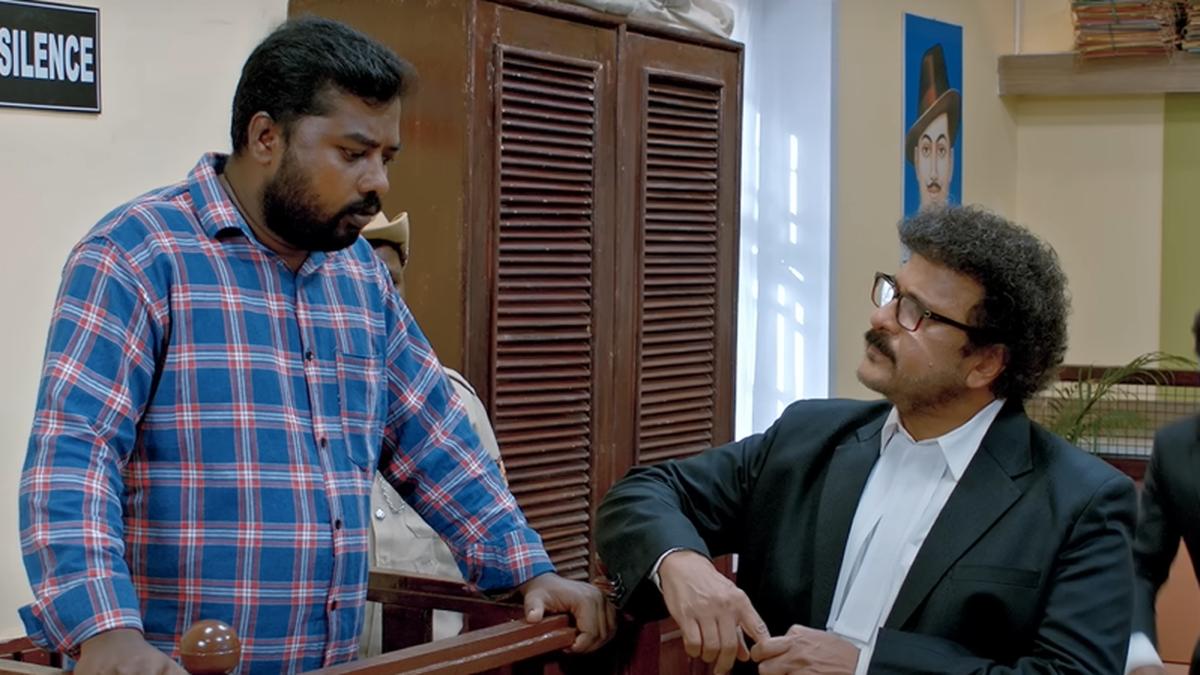
In director Gururaj Kulkarni’s sophomore film, *The Judgement*, viewers are taken on a journey through the intricacies and nuances of the Indian legal system. The film begins with a surprising turn of events when investment banker Anil, portrayed by Diganth Manchale, is arrested for the murder of his client Roopa, played by Roopa Rayappa, who is also the head of an NGO. Right from the start, it’s palpable that Anil may not be the actual perpetrator. Yet, despite our instincts telling us otherwise, Govind, a highly acclaimed lawyer played by V. Ravichandran, ensures that Anil is found guilty. There’s an underlying feeling that there’s more to the story than meets the eye.
Instead of focusing on the mystery of the murder, *The Judgement* delves deep into the labyrinth of the Indian judicial system. This storytelling choice positions the audience two steps ahead of the film’s plot concerning the murder investigation, despite the filmmakers’ attempts to periodically surprise them. It’s within this context that the movie finds its unique identity.
The narrative takes a compelling turn when Govind suddenly reconsiders Anil’s guilt. This introspective shift hinges on a significant observation – what motivates a lawyer to take up certain cases? The film reveals Govind’s ego-driven nature; he is a man who thrives on being revered and called the best, favoring those who worship him as an almost god-like figure. His journey poses profound questions: Can pride overshadow the pursuit of truth? This internal conflict is further highlighted when Govind’s wife, played by Meghana Gaonkar, a lecturer, urges him to reflect on his actions, pushing him towards a path of introspection.
The plot thickens as Govind decides to dig deeper into the case. Connecting Roopa’s murder with another, the film educates viewers on various laws and courtroom dynamics, transforming itself into a didactic exploration of legal possibilities. This layer adds a substantial heft to the movie as it unfolds, keeping the audience intellectually engaged.
However, the film is not without its flaws.
. The production design, particularly the courtroom set, feels outdated, detracting somewhat from the film’s immersion. Furthermore, scenes such as a police officer investigating the murder site are accompanied by an overly dramatic background score, which might come across as jarring to some viewers, breaking the narrative’s intensity.
Supporting characters such as Anil’s parents, played by Rangayana Raghu and Rekha Kudligi, add a melodramatic touch reminiscent of soap operas, filled with grief and agony over their son’s fate. This drama mirrors the melodramatic tendencies of television serials, which might not resonate well with all viewers. In contrast, the corrupt minister Qureshi, depicted with predictable villainous traits, borders on being a cliché. Nonetheless, Krishna Hebbale’s performance manages to infuse some freshness, providing an anchor to the otherwise stereotypical character.
Occasionally, junior lawyers are shown expressing their admiration for Govind, adding unnecessary layers to his character that dilute the narrative focus. This extraneous emphasis on the protagonist at times hampers the storyline’s fluidity, causing minor disruptions in the film’s pacing.
The most significant weakness of *The Judgement* lies in its predictable mystery. The film doesn’t invest enough effort in bolstering its whodunnit aspect, making the discovery of crucial clues almost too convenient. As a result, it becomes fairly easy for the audience to deduce the identity of the killers well before the climax. Despite this, the courtroom sequences, energized by Ravichandran’s compelling presence, manage to keep the film engaging, although the sheer volume of legal information might feel overwhelming.
All said and done, Gururaj Kulkarni’s second outing as a filmmaker, despite its evident predictability, is not a poor effort. *The Judgement* manages to keep viewers interested to a considerable extent, courtesy of its engaging courtroom drama and reflective undertones. It is a notable addition to Kannada cinema, which through its flaws and strengths alike, signals Kulkarni’s evolving cinematic voice. For those interested in legal dramas that offer more than just a cursory glance at courtroom proceedings, *The Judgement* is certainly worth a watch.












